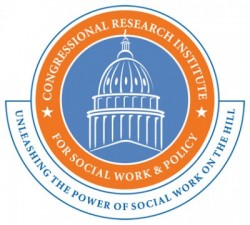Things are changing in these United States. Just this year we have witnessed several significant developments that have altered the history of this nation. Among them are the Supreme Court’s sanctioning of same sex marriage and striking down challenges to the Affordable Care Act. And after the horrendous tragedy in the Emanuel African Methodist Episcopal Church in Charleston, South Carolina that ended the lives of nine parishioners, we witnessed the removal of the confederate flag from government grounds. The flag was for many a symbol of hate and intolerance and a constant reminder that racism continues to persist despite the progress that has been made over the years. There is still much work to do to achieve a society that works for the many and not just for the few.
A group of diverse social work students are not content waiting for change to happen. They intend to work to bring about change in the near future. While many of us witnessed the evolution of support for same sex marriage over several decades, they saw that it can happen rather quickly in today’s society. These students are led by Shauntia White, a second-year MSW student at The Catholic University of America School of Social Service who conceived and spearheaded the March 17 student advocacy day activities. She has pulled together a diverse group of young social work leaders from schools across the country and they will be reaching out to like-minded students at various campuses to encourage them to become more politically active, help register non-voters and bring about needed change. The Student Advisory Council will operate under the CRISP banner.
 Since the supply-side tax cuts of the Reagan administration we have witnessed an escalating economic imbalance favoring the wealthy that has the nation on the path to plutocracy. We have evidence that these trickle-down fiscal policies are the “voodoo economics” George H. W. Bush predicted they would be yet there is no political will to reverse them with progressive tax policy that will restore balance to our economy. The only presidential aspirant seriously proposing the idea is Vermont Senator Bernie Sanders and he is being dismissed by Democrats and Republicans as a far to the left socialist. One has to wonder whether Hillary Clinton is treading cautiously to avoid being pulled too far to the left or that she really believes her menu of moderate policies will really make a difference.
Since the supply-side tax cuts of the Reagan administration we have witnessed an escalating economic imbalance favoring the wealthy that has the nation on the path to plutocracy. We have evidence that these trickle-down fiscal policies are the “voodoo economics” George H. W. Bush predicted they would be yet there is no political will to reverse them with progressive tax policy that will restore balance to our economy. The only presidential aspirant seriously proposing the idea is Vermont Senator Bernie Sanders and he is being dismissed by Democrats and Republicans as a far to the left socialist. One has to wonder whether Hillary Clinton is treading cautiously to avoid being pulled too far to the left or that she really believes her menu of moderate policies will really make a difference.
Conservatives’ grip on Congress and the electorate has produced a distrust of government to the extent a majority of Americans believe the country is on the wrong track but are weary of any governmental solution because they see the government as something outside of themselves. The only fix will come when the body politic begins electing representatives who are truly committed to their interests and not those of wealthy funders. Change will occur when more nonvoters understand the only antidote to their despair is to register and go to the polls. At any rate, conservatives will begin to lose their grip on the levers of policy as the composition of voters change dramatically as older white Americans drop out of the electorate. According a 2014 report by the Pew Research Center, by 2050, the white population in America will drop dramatically to 43 percent, almost half of the 85 percent in 1960.
Millennials are the next wave of the electorate. Most researchers identify them as being 18 to 33 years old. It is estimated that they are 86 million strong with strong liberal political leanings. Two recent polls by the Reason Foundation and the Pew Research Center found their views are somewhat conflicting. Like the majority of Americans, they support raising taxes on the wealthy but they would like to see taxes cut overall. A Fusion Poll earlier this year found enthusiasm among millennials for voting in the 2016 elections and they are leaning heavily towards Hillary Clinton. Young social workers could help get them out to the polls.
These actions and more are bubbling up around the country as more social workers realize that commitment to social justice and social change mandated by our code of ethics requires action along with verbal and written confirmation. Many Social workers are not satisfied with the current state of our society—the growing gap between the haves and have nots, the lack of employment opportunities for young people, and children being trapped in poverty. We see ourselves as agents of change but it will take organization and leadership. We will never know how much social work can do to change this society until we give it our best effort.
The post Young Social Workers Say the Future is Now appeared first on Congressional Research Institute for Social Work and Policy.
Written By Charles E. Lewis Jr., Ph.D
Young Social Workers Say the Future is Now was originally published @ Congressional Research Institute for Social Work and Policy » Charles Lewis and has been syndicated with permission.
Our authors want to hear from you! Click to leave a comment
Related Posts






